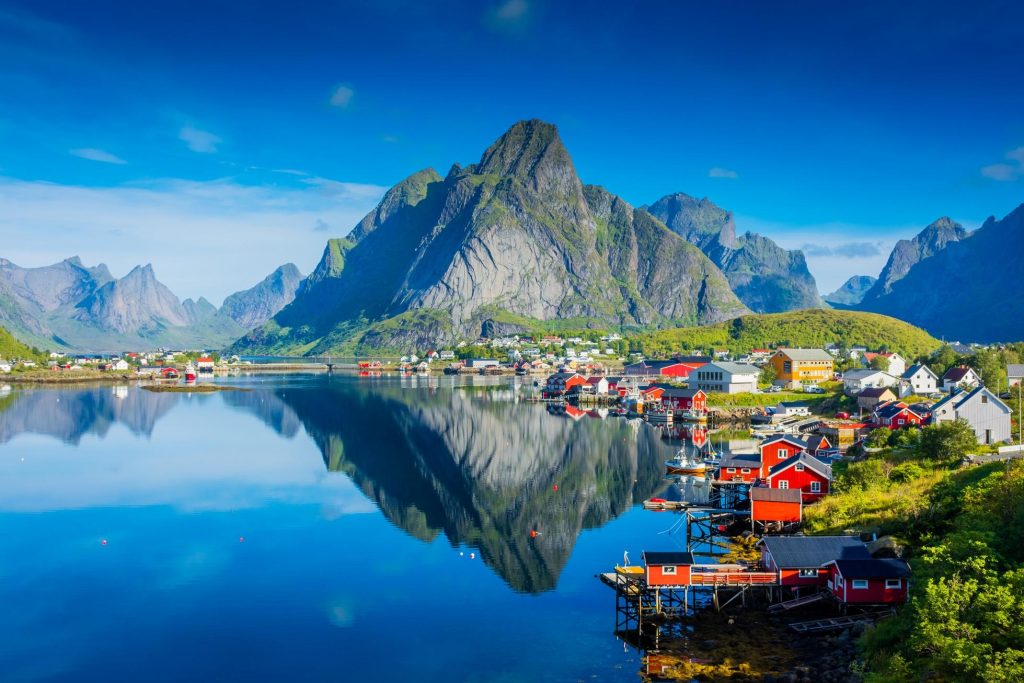Wealth is a subjective concept, especially when you consider it geographically. Visit different countries and cities and you’ll find the same things can vary wildly in price, from traveling to eating out to souvenir shopping. Prices are typically driven by the wealth of the inhabitants but can also be affected by a place’s popularity as a tourist destination. So that begs the question, what is the world’s richest country?
To find out which countries are truly rich in 2025, The Economist has ranked 178 countries around the world using three GDP measures of wealth:
- The first covers the country’s GDP per person at market exchange rates. Simple, intuitive and widely cited, it does however ignore the price differences between countries.
- The second uses purchasing-power parity (or PPP) to adjust income levels based on local costs. This creates a more realistic guide to living standards but doesn’t account for leisure time—the share of people in work and how many hours they work to earn their wealth.
- The third incorporates both local prices and hours worked to create a more holistic and realistic overall view of a country’s wealth relative to its inhabitants—and visitors.
The ranking excludes some places, hence only 178 countries are listed. Some are too small to rank—Bermuda, for example. In others it’s almost impossible to get accurate data—Ireland, “where calculations are polluted by tax arbitrage”, and Luxembourg, where commuters flooding in from neighboring Germany, France and Belgium inflate and distort income levels. Elsewhere, particularly in autocracies, the data is simply too unreliable to use.
You can see exact details of how these measures were created, read the full Economist methodology.
The world’s richest country—or rather, countries
Each of the three measures of wealth delivers a different country to the top of its rankings. Several appear at or close to the top of all three—Switzerland, Singapore and Norway.
In pure dollar terms, the richest country by income is Switzerland with average annual earnings of more than $104,000 in 2024, the only country to average over the $100 mark. Singapore comes in second and Norway third with average earnings of $90,700 and $86,800 respectively for the same year.
If you’ve ever been to Switzerland (and if not, you really should—it’s one of the world’s most spectacular countries), you’ll know it’s expensive. In fact, it’s one of the most expensive countries to live in the world, meaning money doesn’t go quite as far. That has a dramatic impact on the relative wealth of its inhabitants, and the travel costs of its visitors.
Adjusted to account for the cost of living there, Switzerland drops to fifth place for the second measure of wealth incorporating PPP, with an adjusted GDP per person of $93,800. Here, Singapore takes the top spot with an adjusted GPD of $151,000. Macau and Qatar climb to second and third spots respectively with adjusted GDPs of $128,000 and $126,000. Norway comes in fourth.
Looking at the third measure that incorporates not only the local prices but also the amount of time one needs to work to earn that income, Norway moves into the top spot with an adjusted GDP of $115,000. Second place goes to Qatar with an adjusted GDP of $111,000 and third to Denmark with an adjusted GDP of $92,300. In this scenario, Switzerland stays in fifth spot but Singapore drops to eighth, highlighting its long working hours.
The U.S. ranks in the top ten wealthiest countries in the world
European countries dominate, taking 12 of the top 20 places averaged across all three measures. While the U.S. is the world’s biggest economy by GDP, it ranks 4th, 7th and 6th on the respective measures of wealth. Its base GDP is $85,800 and interestingly, this barely wavers over the course of the three different measures—it remains the same adjusted for local prices and climbs slightly to $87,600 when accounting for hours worked as well.
Great Britain fares far worse, occupying 19th, 27th and 25th places for each measure respectively, with a significant drop in performance when catering in cost of living and hours worked.
Not all countries’ rankings reflect their social situations. In countries like Saudi Arabia and Turkey, fewer women get paid to work. This means they rank higher for income based on hours worked than on income alone, as earnings are spread among fewer people. Likewise, some countries are in more transition than others. Italy, for example, has a high retired population, while Nigeria has a high young population not yet old enough to work. In each of these cases, fewer working people are supporting more non-working people.
The impact of this can most clearly be seen in Burundi, which appears at the bottom of the wealth list. Incredibly, in Burundi most of the population is under 17 years old (though that by no means makes it the youngest average population in the world—taken by Niger with a median age of just 15). This is reflected in a smaller working population and much lower wages—barely 0.15% of the average Swiss wage. That means, even adjusted to account for local prices, around 100 Burundians would earn the equivalent of just one Swiss wage.

